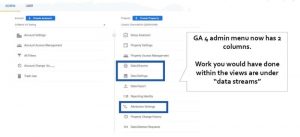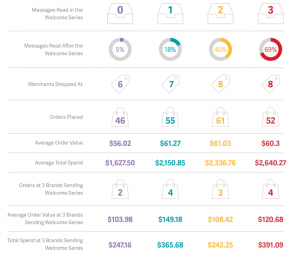![]()
For most e-Commerce companies, webmasters, and digital marketers, the focus lately has been on ensuring that your website is mobile friendly. However, you still cannot ignore shopping cart page optimization. There are steps you can take to ensure that your shopping cart isn’t causing abandonment with small missing items, distractions, or deterring factors. This article today will cover 10 simple tips to help improve your shopping cart conversion rate.
- Consistent design: This especially applies if you have a third party shopping cart. Often times, it can look totally different from the rest of your site. This does not instill confidence in your buyer if, all of the sudden, the page that asks for their payment details and personal information looks different than the rest of the site. To avoid this uncertainty with your buyers, make sure that your shopping cart page(s) looks the same as the rest of your site.
- Security comes first: Further instill confidence in your shoppers by displaying secure shopping logos. Use the tools that your SSL certificate provides you with. Logos that are easily recognizable and trusted symbols are better than text information.
- Shipping details: For companies that charge shipping, it can be one of the top reasons for abandonment. Customers don’t like to pay shipping. Test what type of shipping works best for your company, but always be up front in the checkout process. Never hide the shipping costs from customers and always try to offer different shipping prices and different shipping times.
- Use simple language: Your shopping cart isn’t a place for fancy words or industry jargon. Keep your selling message short, if anything at all, and just use language explaining what information you need from buyers.
- Plan out a clear path for shoppers: Don’t let your buyers get confused about what they should do next. Light up the path so that shoppers have a clear choice and see where to click.
- Link to policies: Linking or listing policies is another tricky area when it comes to your shopping cart. You don’t want shoppers to leave the checkout process to find answers to a question they might have about your return policy, privacy policy, etc. You can link to these policies from your shopping cart page to a new window so that they won’t lose their spot in the checkout process. Find the right wording in the link anchor text to help try to answer most questions if you can. For example, the link text could be No Hassle Return Policy or We never sell or share your information.
- Add a review step: Even though you generally want the checkout process to be as smooth as possible, adding a review step actually helps with conversions because you can encourage shoppers to put all of their information in without any hesitation when you write You can review all your information before finalizing your order.
- Find the right balance: What we mean is the right balance between keeping shoppers informed while less distracted. It is hard to find the right balance of including all of the information you need to tell your shoppers why they should buy from you versus having too many distractions that can lead to information overload or distractions that take shoppers away from the buying process.
- Confirmation page and email notification: Make sure that your checkout process has a clear confirmation page and that the customer receives a confirmation email within minutes after placing the order. Without these two elements, it is very possible that a customer might think the order didn’t go through and therefore may not plan on keeping it.
- Test, test, test: When it comes to each of the steps and improvements you make, some might work for you and some might not. This is a fluid and ever-changing process. Some things work for some companies and certain sets of customers and others do not. The best way to continually increase conversions and increase sales is through testing and making small changes that lead to continual improvements in your conversion rate.
We hope that these 10 tips for improving shopping cart optimization are useful to you. Remember that your shopping cart checkout process should always be fluid, and you should continually make changes that help make small improvements on top of improvements. Split testing and usability studies will also help guide your way through this process of improving conversion rates.
The overall theme of our tips today is that it is all about finding the right balance and what works for your unique set of customers who are buying your products. What works for one company might not always work for another. By the same token, continual change is necessary because something that used to work for your company might not always continue to work, since there are always other varying factors involved in e-Commerce.
Digital & Social Articles on Business 2 Community(92)









